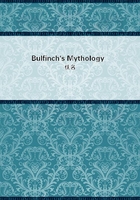
第73章
Admetus was a suitor, with others, for the hand of Alcestis, the daughter of Pelias, who promised her to him who should come for her in a chariot drawn by lions and boars. This task Admetus performed by the assistance of his divine herdsman, and was made happy in the possession of Alcestis. But Admetus fell ill, and being near to death, Apollo prevailed on the Fates to spare him on condition that some one would consent to die in his stead.
Admetus, in his joy at this reprieve, thought little of the ransom, and perhaps remembering the declarations of attachment which he had often heard from his courtiers and dependents, fancied that it would be easy to find a substitute. But it was not so. Brave warriors, who would willingly have perilled their lives for their prince, shrunk from the thought of dying for him on the bed of sickness; and old servants who had experienced his bounty and that of his house from their childhood up, were not willing to lay down the scanty remnant of their days to show their gratitude. Men asked, "Why does not one of his parents do it? They cannot in the course of nature live much longer, and who can feel like them the call to rescue the life they gave from an untimely end?" But the parents, distressed though they were at the thought of losing him, shrunk from the call. Then Alcestis, with a generous self-devotion, proffered herself as the substitute. Admetus, fond as he was of life, would not have submitted to receive it at such a cost; but there was no remedy.
The condition imposed by the Fates had been met, and the decree was irrevocable. Alcestis sickened as Admetus revived, and she was rapidly sinking to the grave.
Just at this time Hercules arrived at the palace of Admetus, and found all the inmates in great distress for the impending loss of the devoted wife and beloved mistress. Hercules, to whom no labor was too arduous, resolved to attempt her rescue. He went and lay in wait at the door of the chamber of the dying queen, and when Death came for his prey, he seized him and forced him to resign his victim. Alcestis recovered, and was restored to her husband.
Milton alludes to the story of Alcestis in his Sonnet on his deceased wife.
"Methought I saw my late espoused saint, Brought to me like Alcestis from the grave, Whom Jove's great son to her glad husband gave, Rescued from death by force, though pale and faint."James Russell Lowell has chosen the "Shepherd of King Admetus"for the subject of a short poem. He makes that event the first introduction of poetry to men.
"Men called him but a shiftless youth, In whom no good they saw, And yet unwittingly, in truth, They made his careless words their law.
And day by day more holy grew Each spot where he had trod, Till after poets only knew Their first-born brother was a god."In The Love of Alcestis, one of the poems in The Earthly Paradise, Mr. Morris thus tells the story of the taming of the lions:
"----- Rising up no more delay he made, But took the staff and gained the palace-door Where stood the beasts, whose mingled whine and roar Had wrought his dream; there two and two they stood, Thinking, it might be, of the tangled wood, And all the joys of the food-hiding trees.
But harmless as their painted images 'Neath some dread spell; then, leaping up, he took The reins in hand and the bossed leather shook, And no delay the conquered beasts durst make, But drew, not silent; and folk just awake, When he went by as though a god they saw, Fell on their knees, and maidens come to draw Fresh water from the fount, sank trembling down, And silence held the babbling, wakened town."ANTIGONE
The poems and histories of legendary Greece often relate, as has been seen, to women and their lives. Antigone was as bright an example of filial and sisterly fidelity as was Alcestis of connubial devotion. She was the daughter of OEdipus and Jocasta, who, with all their descendants, were the victims of an unrelenting fate, dooming them to destruction. OEdipus in his madness had torn out his eyes, and was driven forth from his kingdom Thebes, dreaded and abandoned by all men, as an object of divine vengeance. Antigone, his daughter, alone shared his wanderings, and remained with him till he died, and then returned to Thebes.
Her brothers, Eteocles and Polynices, had agreed to share the kingdom between them, and reign alternately year by year. The first year fell to the lot of Eteocles, who, when his time expired, refused to surrender the kingdom to his brother.
Polynices fled to Adrastus, king of Argos, who gave him his daughter in marriage, and aided him with an army to enforce his claim to the kingdom. This led to the celebrated expedition of the "Seven against Thebes," which furnished ample materials for the epic and tragic poets of Greece.